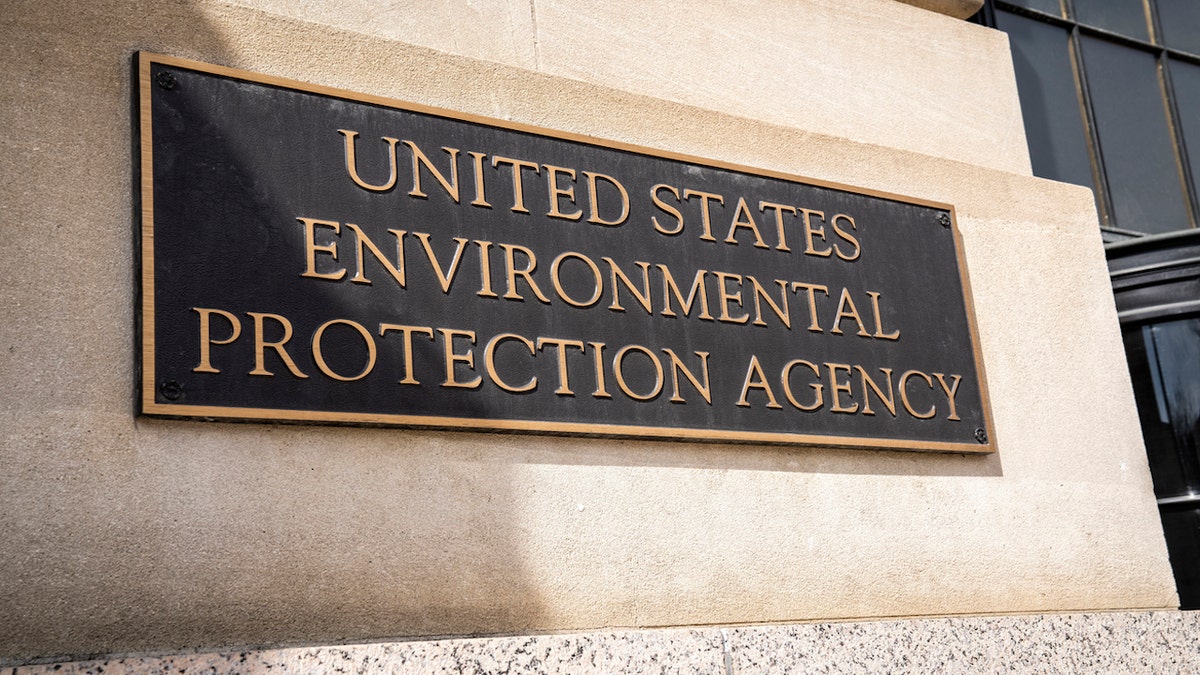EPA sued by consumer, manufacturing, agricultural coalitions over new vehicle emissions standards
Three coalitions comprised of consumer advocacy groups, manufacturing firms, agricultural interests and marketers will be filing a legal petition to try to halt the EPA's new tailpipe rule.

EXCLUSIVE: In a strike against the latest EPA regulations, a unified front of three powerful coalitions is set to launch a legal juggernaut, representing 30 petitioners, on Thursday.
The legal challenge seeks to overturn the EPA's controversial and stringent new vehicle emissions standards that have sparked widespread debate across the country.
The three coalitions, representing consumer groups, biofuel producers, agricultural interests; including organizations like the American Petroleum Institute (API) and American Fuel & Petrochemical Manufacturers (AFPM), will file petitions in Washington, D.C.'s, federal court seeking to halt implementation of the new regulations.
The EPA has said the goals of its rule could be achieved with 56% of new vehicle sales being electric by 2032, which would require a major increase in EV sales in the interim, according to the Associated Press.
The EPA and White House also have argued the new standards, announced in March, do not constitute a ban on internal-combustion engines, but plaintiffs in the lawsuit claimed otherwise.
AUTO INDUSTRY EXPERTS WARN BIDEN'S EV MANDATE WILL LIMIT GAS CAR OPTIONS IN FUTURE
An attorney for some of the petitioners, Michael Buschbacher of the Boyden Gray law firm, told Fox News Digital that Congress never authorized the EPA to "reverse-engineer an electric vehicle mandate."
"Forced electrification of the vehicle fleet is one of the least cost-effective decarbonization strategies out there. By contrast, renewable fuels are a feasible and affordable means of reducing greenhouse-gas emissions and improving vehicle efficiency," he said.
Petitioners in the suit include the Clean Fuels Development Coalition, the American Free Enterprise Chamber of Commerce, and corn-growers associations from 13 states.
Ethanol, a now-ubiquitous additive in standard octane gasolines at levels up to 15%, is mainly derived from corn grown in the U.S.
To illustrate its view that the new EPA rules wrongly represent an effective ban on gas-powered cars, AFPM used the example of a pickup truck with carbon emissions of 430 grams per mile in a document obtained by Fox News Digital.
GREEN GOVERNANCE THE NEW GUISE FOR MERCANTILISM, WILL LEAD TO GLOBAL INSTABILITY: EXPERT
If the same model of pickup truck would be improved to emit 360 grams per mile by 2032, under the new EPA rule, auto dealers would have to sell at least three electric vehicles at the same time to meet the required 85 grams per mile fleetwide average.
Therefore, the organization argued, sales of standard pickup trucks would be "artificially capped" and lead to a spike in MSRP.
In a drafted statement obtained by Fox News Digital celebrating the legal filing, API vice president and general counsel Ryan Meyers said it will protect U.S. consumers and manufacturing workers while protecting domestic energy security.
"[The] EPA has exceeded its congressional authority with this regulation that will eliminate most new gas cars and traditional hybrids from the U.S. market in less than a decade. We look forward to making our case in court," Meyers said.
CLICK HERE TO GET THE FOX NEWS APP
Chet Thompson, president of AFPM, told Fox News Digital the EPA "overstepped" in formulating fleetwide average standards instead of concrete standards cars and trucks must meet.
"Since no gas, diesel or traditional hybrid today can meet 85 grams/mile, EPA’s averaging scheme – which is already being contested for the 2023-2026 standards – is clearly meant to force EV adoption," he said.
But the EPA pushed back on criticisms and characterizations of its new standards, telling Fox News Digital the new rules actually expand consumer choice and save drivers money in the long run:
"By encouraging continued development of more efficient vehicles, EPA’s standards are also projected to save Americans on average about $6,000 over the lifetime of a new model year 2032 light-duty vehicle, compared to a vehicle meeting the 2026 standards, by accelerating adoption of technologies that reduce fuel and maintenance costs as well as pollution," an EPA spokesperson said.
A White House spokesperson in May echoed much of the EPA's statement, telling Fox News Digital that President Biden is "investing in a future that is made in America by American workers as we position the United States to lead the clean energy future."



